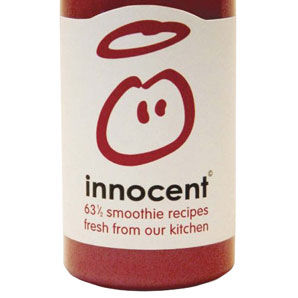 Although you wouldn’t think it, more people are taking an interest in trying to be healthy. Unfortunately, most don’t actually know how to, and a lot treat themselves all too often with large portions of calorie dense foods. But something well known by food manufacturers is that people now take note of foods labelled as “healthy”, “diet”, “low fat”, “light” and “low sugar”. While the FDA has fairly tight restrictions at what can be claimed as “low fat” etc a lot of manufacturers have found ways of making their foods look healthier than they actually are. A good example of this are the available “energy” drinks that a lot of people associate with exercise and maybe drink before a workout. People are lead to believe that these drinks will help their training and assist their fat loss attempts, but a lot of these drinks are laden with sugars, although the stimulants they contain that get the user zipped-up do lead them to believe they are in a “fat burning zone.”
Although you wouldn’t think it, more people are taking an interest in trying to be healthy. Unfortunately, most don’t actually know how to, and a lot treat themselves all too often with large portions of calorie dense foods. But something well known by food manufacturers is that people now take note of foods labelled as “healthy”, “diet”, “low fat”, “light” and “low sugar”. While the FDA has fairly tight restrictions at what can be claimed as “low fat” etc a lot of manufacturers have found ways of making their foods look healthier than they actually are. A good example of this are the available “energy” drinks that a lot of people associate with exercise and maybe drink before a workout. People are lead to believe that these drinks will help their training and assist their fat loss attempts, but a lot of these drinks are laden with sugars, although the stimulants they contain that get the user zipped-up do lead them to believe they are in a “fat burning zone.”
Another example, this time from the UK, was the investigation of a drinks company based in London. This company, called ‘Innocent’, manufactures and sells milkshake-based drinks. By the way, if you’re wondering why I bring up a UK company for this, its because US giant The Coca-Cola Company recently increased its share in Innocent to 58%, buying out the original two start-up investors and making it the majority shareholder and essentially a US company.  Back on track, in 2007 Innocent got into a bit of trouble with the UK’s Advertising Standards Authority for claiming their “smoothie” drink to be a “superfood.” But that isn’t my issue with this company or product. What I want to point out is that this company has grown rapidly in several short years (the company only founded in 1999) off the back of consumers believing it to be a health food. After all, the marketing promotes each product as being two of the UK-recommended five-fruit-and-vegetable portions per day, and gives you “the goodness of nine different types of fruit.” What it doesn’t highlight, however, is that each bottle is approximately 130 calories, giving around 27g of sugar from nearly 30g total carbohydrates! Realize that this is a 250ml portion. In comparison, a 330ml can of full-sugar Coca-Cola gives 139kcals, making it less calorie dense per 100ml. But of course the majority of people will pick up a Smoothie believing it to be the healthier calorie choice.
Back on track, in 2007 Innocent got into a bit of trouble with the UK’s Advertising Standards Authority for claiming their “smoothie” drink to be a “superfood.” But that isn’t my issue with this company or product. What I want to point out is that this company has grown rapidly in several short years (the company only founded in 1999) off the back of consumers believing it to be a health food. After all, the marketing promotes each product as being two of the UK-recommended five-fruit-and-vegetable portions per day, and gives you “the goodness of nine different types of fruit.” What it doesn’t highlight, however, is that each bottle is approximately 130 calories, giving around 27g of sugar from nearly 30g total carbohydrates! Realize that this is a 250ml portion. In comparison, a 330ml can of full-sugar Coca-Cola gives 139kcals, making it less calorie dense per 100ml. But of course the majority of people will pick up a Smoothie believing it to be the healthier calorie choice.
And this is something that has recently been investigated. Research coming out of Holland has looked specifically into the impact a nutrition logo has on how a chocolate dessert is perceived. While several factors were looked at, the main finding was that with the so-called health logo, the dessert was judged to be less unhealthy (although obviously not healthy, this is a chocolate dessert after all, the participants clearly weren’t idiots) than when it did not feature the logo.
I think a lot needs to be done to help correct the escalating ill-health in the US, not just label-adjustments. Fundamentally, people need to be educated from a young-age, but since I find most RD’s to barely know their assholes from their elbows I guess that would be just as much of a lost cause. Until then I guess people will continue to get fat and develop obesity-related diseases, and large pharmaceutical companies will continue to pump out expensive drugs to help stop them dying so quickly.
Source: Steenhuis IH, Kroeze W, Vyth EL, Valk S, Verbauwen R, Seidell JC. The effects of using a nutrition logo on consumption and product evaluation of a sweet pastry. Appetite. 2010 Aug 3.
